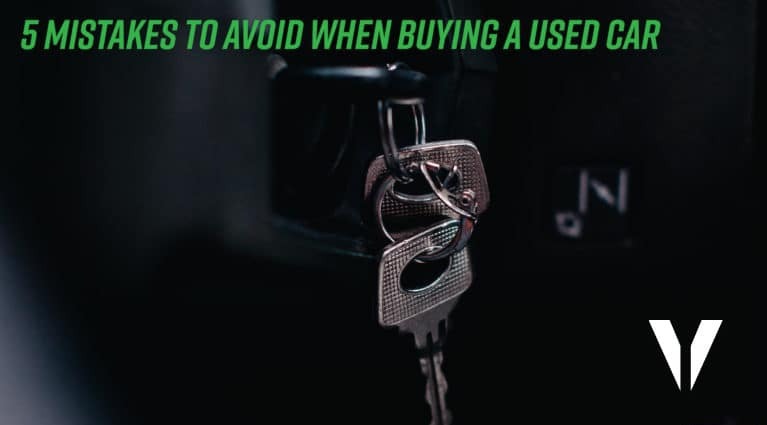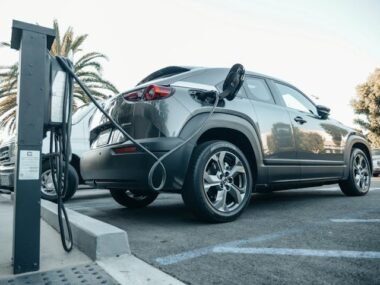Common Mistakes to Avoid When Buying a Used Car
Buying a used car can be a smart financial decision, offering the opportunity to get a reliable vehicle at a fraction of the cost of a new one. However, navigating the used car market can be tricky, and there are many pitfalls to avoid to ensure you make a wise investment.
In this post, we’ll share basic tips for avoiding common mistakes when buying a used car, empowering you to purchase with confidence and peace of mind.
Common Mistakes to Avoid When Buying a Used Car
Skipping Research
One of the biggest mistakes when buying a used car is failing to do thorough research. Research various makes and models, their reliability, common issues, and resale value. This knowledge will help you make an informed decision and narrow down your options.
Not Setting a Budget
Before you start shopping for a used car, determine how much you can afford to spend. Set a budget that includes not only the purchase price but also taxes, registration fees, insurance, and potential repairs. Stick to your budget to avoid financial strain.
Foregoing a Vehicle History Check
Always obtain a vehicle history report (e.g., Carfax or AutoCheck) to check for past accidents, title issues, odometer discrepancies, and other red flags. A clean vehicle history is essential for peace of mind and ensuring you’re not buying a lemon.
Skipping the Inspection
Never skip a thorough inspection of the used car you’re interested in buying. Inspect both the exterior and interior for signs of damage, wear, or neglect. Check under the hood, test drive the car, and have a trusted mechanic inspect it for any hidden issues.
Ignoring Maintenance Records
Request maintenance records from the seller and review them carefully. Regular maintenance is crucial for a used car’s longevity and performance. A well-documented maintenance history is a sign of a well-maintained vehicle.
Not Test Driving the Car
Always test-drive a used car before making a purchase decision. Pay attention to how the car handles, accelerates, brakes, and sounds. Test driving allows you to identify any potential issues and ensure the car meets your expectations.
Falling for Too Good to Be True Deals
Be wary of deals that seem too good to be true. If a used car is priced significantly below market value, there may be hidden issues or undisclosed problems. Trust your instincts and proceed with caution.
Neglecting to Negotiate
Don’t hesitate to negotiate the price when buying a used car. Research the fair market value of the vehicle and use this information to negotiate a lower price with the seller. Be prepared to walk away if the seller isn’t willing to negotiate.
Overlooking Ownership Costs
Consider not only the purchase price but also the long-term ownership costs of the used car, including insurance, maintenance, fuel, and potential repairs. Choose a car that fits within your budget and won’t break the bank with ongoing expenses.
Not Getting Pre-Approved for Financing
Before you start shopping for a used car, get pre-approved for financing from banks, credit unions, or online lenders. This will give you a clear idea of how much you can afford to borrow and the interest rates you qualify for, streamlining the buying process.
Ignoring the Vehicle’s Resale Value
Consider the resale value of the used car you’re interested in buying. Choose a vehicle with strong resale value to maximize your return on investment when it’s time to sell or trade in the car. Factors such as brand reputation, model popularity, and condition influence resale value.
Forgetting to Check Insurance Costs
Before you buy a used car, research insurance costs for the specific make and model. Insurance premiums can vary widely depending on factors such as the car’s age, safety features, and repair costs. Choose a car with affordable insurance rates to keep ongoing expenses manageable.
Not Considering a Vehicle Inspection Service
If you’re buying a used car from a private seller or online, consider hiring a professional inspection service to assess the vehicle’s condition. A thorough inspection can uncover any hidden issues and give you peace of mind about your purchase.
Disregarding Warranty Options
Explore warranty options when buying a used car, such as extended warranties or certified pre-owned programs. These warranties can provide added protection and peace of mind against unexpected repairs and expenses.
Overlooking Title and Registration Requirements
Before finalizing the purchase of a used car, ensure you understand the title and registration requirements in your state. Verify that the seller has clear title ownership and all necessary paperwork for transferring ownership to you.
Buying a used car can be a rewarding experience when done right, but it’s essential to avoid common mistakes that can lead to regret and financial loss. By following these tips for avoiding common pitfalls, you can approach the used car buying process with confidence and make a smart investment that meets your needs and budget.
Remember to research thoroughly, inspect carefully, negotiate wisely, and trust your instincts throughout the process. With diligence and attention to detail, you can find the perfect used car that brings you joy and reliability for years to come.





